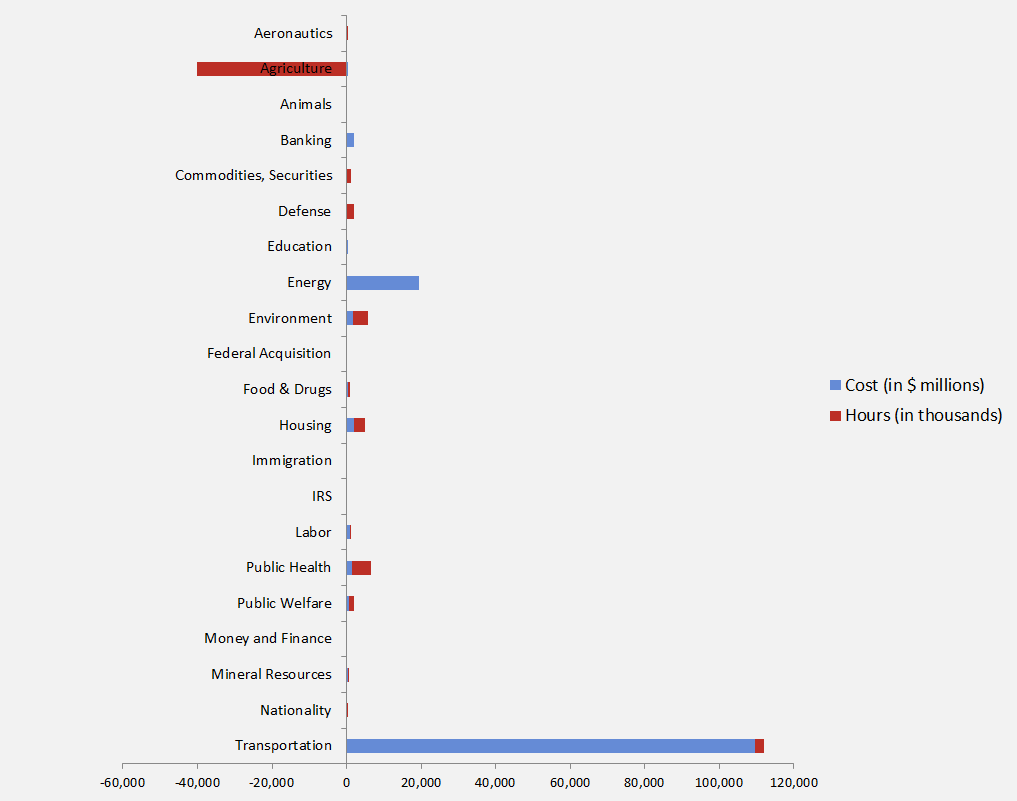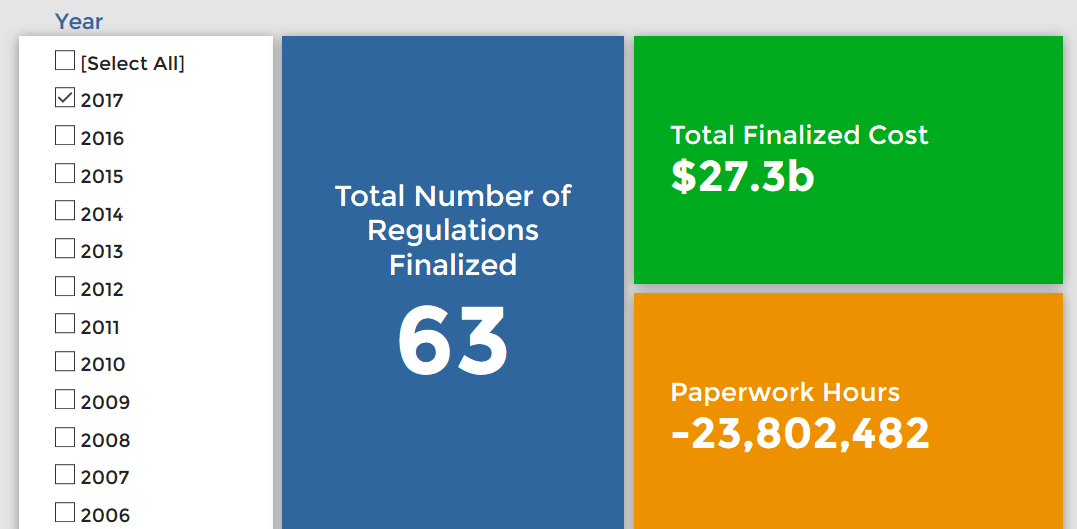Week in Regulation
March 27, 2017
One Rule
On the regulatory front, nothing happened this week. The Federal Aviation Administration (FAA) approved one airworthiness directive, but otherwise, the Federal Register was full of routine notices. The U.S. Senate did pass three Congressional Review Act (CRA) resolutions of disapproval and the administration has started to review significant health care rules. The per capita regulatory burden for 2017 is $429.
Regulatory Toplines
- New Proposed Rules: 34
- New Final Rules: 67
- 2017 Total Pages of Regulation: 15,112
- 2017 Final Rules: $27.2 Billion
- 2017 Proposed Rules: $111.6 Billion
The American Action Forum (AAF) has catalogued regulations according to their codification in the Code of Federal Regulations (CFR). The CFR is organized into 50 titles, with each title corresponding to an industry or part of government. This snapshot will help to determine which sectors of the economy receive the highest number of regulatory actions.
FAA approved a final airworthiness directive for legacy Boeing 737-500 airplanes. The directive requires inspections of the fuselage to detect cracks. The total costs of the measure are $9.4 million. As this is not a significant rule, it does not count toward the administration’s one-in, two-out regulatory budget.
The administration now has five pending health care regulations under review, three of which are economically significant. All of the rulemakings, however, appear to be routine updates to payment programs and reimbursement rates.
Tracking Regulatory Modernization
The Senate narrowly passed three CRA resolutions this week, repealing a Department of Interior rule for “Non-Subsistence Take of Wildlife,” a measure from the Department of Labor regulating “Recordable Injury and Illness,” and a rule from the Federal Communications Commission on “Broadband Privacy.” However, none of the original regulatory analyses, to the extent they existed, monetized benefits or costs.
The House and Senate have both passed ten CRA resolutions, with the Senate passing eleven total and the House 14 in all. President Trump has only signed three measures, which means there are seven CRA resolutions awaiting formal approval. Once signed, Congress and the administration will have eliminated $3.7 billion in total regulatory costs and 4.2 million paperwork burden hours. There are four additional House CRA approvals on which the Senate has not voted. To date, there have been 33 resolutions of disapproval introduced, with three formally approved.
Affordable Care Act
Since passage, based on total lifetime costs of the regulations, the Affordable Care Act has imposed costs of $53 billion in final state and private-sector burdens and 176.9 million annual paperwork hours.
Dodd-Frank
Click here to view the total estimated revised costs from Dodd-Frank; since passage, the legislation has produced more than 74.8 million final paperwork burden hours and imposed $38.5 billion in direct compliance costs.
Total Burdens
Since January 1, the federal government has published $138.9 billion in compliance costs ($27.2 billion in final rules) and has cut 19.8 million paperwork burden hours (due to 23.8 million in reductions from final rules). Click below for the latest Reg Rodeo findings.












